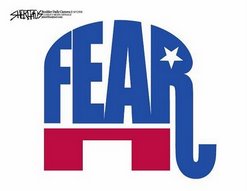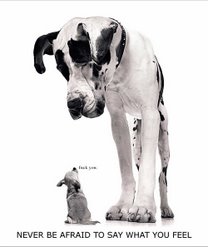Silly me. I thought we still had the same Constitution we've always had. But, according to Justice Antonin Scalia, there is a "new philosophy of the Constitution". Mind you, I'm just part of the reading public who Scalia clearly disdains since he states that "nobody would read it " if the press were to report the details of the justice's rulings.
Of course, I always thought that judges and the courts were independant and approached each case with an open mind and no agenda of their own. The esteemed Scalia has certainly disavowed me of that notion with his statements following:
"'You talk about independence as though it is unquestionably and unqualifiably a good thing," Scalia said. "It may not be. It depends on what your courts are doing."
Scalia added, "The more your courts become policy-makers, the less sense it makes to have them entirely independent."
Policy makers. Hmmm. Golly, I'm a whole lot dumber than I thought. All this time, I've thought that Congress and the state legislatures made the laws and the executive branch made... er... policies for the country, in addition to upholding the law (ahh, pardon me while I have a chuckle).
pol·i·cies1. A plan or course of action, as of a government, political party, or business, intended to influence and determine decisions, actions, and other matters: American foreign policy; the company's personnel
policy.2.a. A course of action, guiding principle, or procedure considered expedient, prudent, or advantageous: Honesty is the best policy.b. Prudence, shrewdness, or sagacity in practical matters.
Supreme Court Justices were supposed to only interpret the Constitution and make sure that none of those laws violated the Constitution. That's what they taught me in Social Studies and Civics classes.
No. Abortion (what else?) changed all that:
"'Take the abortion issue,' he said. 'Whichever side wins, in the courts, the other side feels cheated. I mean, you know, there's something to be said for both sides.'"'The court could have said, 'No, thank you.' The court have said, you know, 'There is nothing in the Constitution on the abortion issue for either side,'" Scalia said. "It could have said the same thing about suicide, it could have said the same thing about ... you know, all the social issues the courts are now taking.'""Scalia said courts didn't use to decide social issues like that."'It is part of the new philosophy of the Constitution,' he said. 'And when you push the courts into that, and when they leap into it, they make themselves politically controversial. And that's what places their independence at risk.'"
Here I thought that the 10th amendment granted some power to the people. Call me optimistic, but I kind of thought that meant that, at minimum, a woman's body belongs to her, but maybe it belongs to the government. Except it doesn't say that it does in the Constitution, does it?
Wouldn't that mean that any laws claiming virtual ownership and determination by the state of what a woman may and may not do with her body would be un-Constitutional? So, wouldn't that be a Constitutional ruling rather than a policy?
Oh my. I guess it all depends on your point of view. Like if you're a woman who believes that she owns her body or if you're a big, fat old man who wants to make all women bow down to him and do as he wants them to do with their body, according to his own personal, religious beliefs.
Read the whole AP story by John Heilprin here.
Democrat and Independent Thinker..."The individual has always had to struggle to keep from being overwhelmed by the tribe. If you try it, you will be lonely often, and sometimes frightened. But no price is too high to pay for the privilege of owning yourself." -Nietzsche
Commenting on many things, including..."A government more dangerous to our liberty, than is the enemy it claims to protect us from." - Keith Olbermann
Wednesday, October 25, 2006
Subscribe to:
Post Comments (Atom)






















No comments:
Post a Comment